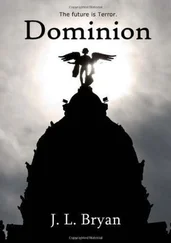Byron Dunn - General Nelson's Scout
Здесь есть возможность читать онлайн «Byron Dunn - General Nelson's Scout» — ознакомительный отрывок электронной книги совершенно бесплатно, а после прочтения отрывка купить полную версию. В некоторых случаях можно слушать аудио, скачать через торрент в формате fb2 и присутствует краткое содержание. Издательство: Иностранный паблик, Жанр: foreign_antique, foreign_prose, на английском языке. Описание произведения, (предисловие) а так же отзывы посетителей доступны на портале библиотеки ЛибКат.
- Название:General Nelson's Scout
- Автор:
- Издательство:Иностранный паблик
- Жанр:
- Год:неизвестен
- ISBN:нет данных
- Рейтинг книги:4 / 5. Голосов: 1
-
Избранное:Добавить в избранное
- Отзывы:
-
Ваша оценка:
- 80
- 1
- 2
- 3
- 4
- 5
General Nelson's Scout: краткое содержание, описание и аннотация
Предлагаем к чтению аннотацию, описание, краткое содержание или предисловие (зависит от того, что написал сам автор книги «General Nelson's Scout»). Если вы не нашли необходимую информацию о книге — напишите в комментариях, мы постараемся отыскать её.
General Nelson's Scout — читать онлайн ознакомительный отрывок
Ниже представлен текст книги, разбитый по страницам. Система сохранения места последней прочитанной страницы, позволяет с удобством читать онлайн бесплатно книгу «General Nelson's Scout», без необходимости каждый раз заново искать на чём Вы остановились. Поставьте закладку, и сможете в любой момент перейти на страницу, на которой закончили чтение.
Интервал:
Закладка:
Byron A. Dunn
General Nelson's Scout
INTRODUCTION
Throughout the following pages the threads of history and fiction are closely interwoven. The plot of the story is laid in the dark and stormy days of 1861, amid the waving trees and blue grass fields of Central Kentucky.
No State wept more bitter tears at the commencement of the dreadful struggle between the North and the South than Kentucky. With loving arms she tried to encircle both, and when she failed, in the language of one of her most eloquent sons, "So intense was her agony that her great heart burst in twain."
Resolutions of neutrality did little good. Sympathies and beliefs are not controlled by resolutions or laws, and never can be. Kentucky was divided into two great hostile camps. The Secession element was very active, and the Union men saw the State slowly but surely drifting into the arms of the Confederacy.
Then it was that Lieutenant William Nelson of the United States navy, a well-known and very popular Kentuckian, asked the privilege of raising ten regiments of Kentucky troops. The request was granted, and Nelson at once commenced his task. Only a man of iron determination and the highest courage would have dared to undertake such a work. He became the object of the fiercest hatred and opposition, – even from many who professed to love the Union. But he never wavered in his purpose, and established a camp for his recruits at Dick Robinson, a few miles east of Danville.
Here it is that the story opens, and Nelson is the chief historic figure – a figure with many imperfections, yet it can be said of him as it was of King James V., in "The Lady of the Lake":
"On his bold visage middle age
Had slightly pressed its signet sage,
Yet had not quenched the open truth
And fiery vehemence of youth;
Forward and frolic glee was there,
The will to do, the soul to dare."
All military movements chronicled in the story are historically correct. The riot in Louisville, the fight for the arms, the foiling of the plot, the throwing of the train from the track, are all historical incidents.
Every real character in the story is called by his true name. In this class belong Colonel Peyton and his son Bailie. The high character of the one and the eloquence of the other are not overdrawn.
The story of Shiloh, as told, may be contradicted, but, the author believes, cannot be successfully controverted. Had it not been for General Nelson, Buell's army would never have reached the battlefield of Shiloh Sunday night.
Fred Shackelford and Calhoun Pennington, the heroes of the story, are children of the imagination, as well as their relatives and friends.
With this brief introduction, the author sends forth this little volume, hoping that the rising generation may not only read it, but enjoy it, and be somewhat enlightened by it.
Through bitter tears and dreadful carnage the Union was preserved; and through it all there has come a great blessing. Thoroughly united, the North and the South are vying with each other in upholding the honor of the flag. Shoulder to shoulder they stand, battling that the last remnant of tyranny may be driven from the New World.
B. A. D.Waukegan, Ill., June, 1898.
CHAPTER I.
THE QUARREL AND THE OATH
A short distance from Danville, Kentucky, on the afternoon of July 21, 1861, two boys might have been seen seated by the roadside under the branches of a wide-spreading oak. Near by, tethered to the stout rail fence which ran along the side of the road, were two spirited thoroughbred horses that champed their bits and restlessly stamped their feet, unnoticed by their young owners, who seemed to be engaged in a heated discussion.
The two boys were nearly the same age and size, and were cousins. Calhoun Pennington, who was the more excited of the two, was very dark, and his black hair, which he wore long, was flung back from a broad and handsome forehead. His countenance was flushed with anger, and his eyes fairly blazed with suppressed wrath.
His companion, Frederic Shackelford, was not quite as large as Calhoun, but his frame was more closely knit, and if it came to a trial of strength between the two, it would take no prophet to tell which would prove master.
Frederic was as fair as his cousin was dark. His eyes were deep blue, and his hair had a decided tinge of red. The firm set lips showed that he was not only a boy of character, but of decided will. While his tones expressed earnestness and deep feeling, his countenance did not betray the excitement under which his cousin labored. Young as Frederic was, he had learned the valuable lesson of self-control.
So earnest did the discussion between the two boys become, that Calhoun Pennington sprang to his feet, and raising his clenched hand, exclaimed in passionate tones: "Do you mean to say that Kentucky is so sunk in cowardice that she will not enforce her proclamation of neutrality? Then I blush I am a Kentuckian."
"I mean to say," calmly replied Frederic, "that it will be impossible for Kentucky to enforce her ideas of neutrality. Kentuckians are no cowards, that you know, Calhoun; but it is not a question of courage. The passions aroused are too strong to be controlled. The North and the South are too thoroughly in earnest; the love of the Union on one side, the love of the rights of the States on the other, is too sincere. We could not remain neutral, if we wished. As well try to control the beating of our hearts, as our sympathies. We are either for the old flag, or against it."
"I deny it," hotly cried Calhoun; "you fellows who are always preaching about the old flag are not the only ones who love the country. It is we who are trying to keep it from becoming an instrument of oppression, of coercion, who really love the old flag. But I know what is the matter with you. Owing to the teachings of that Yankee mother of yours, you are with the Abolitionists, nigger-stealers, the mud-sills of creation, lower and meaner than our slaves. You had better go back to those precious Yankee relatives of yours; you have no business in Kentucky among gentlemen."
Frederic's eyes flashed. He raised his clenched hand convulsively; then, with a tremendous effort, he controlled himself and slowly replied: "Calhoun, we have always been friends and companions, more like brothers than cousins; but if you value my friendship, if you do not wish me to become your deadliest enemy, never speak disrespectfully of my mother again. If you do, young as I am, I shall demand of you the satisfaction one gentleman demands of another. This refused, I shall shoot you like a dog."
For a moment Calhoun gazed in the countenance of his cousin in silence. In the stern, set features, the dangerous gleam of the eye, he read the truth of what he had heard. He was fully as brave as his cousin, and for a moment a bitter and stinging reply trembled on his lips; then his better nature conquered, and extending his hand, he said: "There, Fred; I didn't mean to hurt your feelings, much less reflect on the memory of your mother. From the North though she was, she was one of the best of women, and you know I loved her almost as much as you did yourself, for in many ways she was a mother to me. Forgive me, Fred."
Fred grasped the extended hand, and with tears in his eyes exclaimed, "I might have known you did not mean it, Cal. You are too noble to say aught of one who loved you as my mother did. Forgive my hasty words."
Читать дальшеИнтервал:
Закладка:
Похожие книги на «General Nelson's Scout»
Представляем Вашему вниманию похожие книги на «General Nelson's Scout» списком для выбора. Мы отобрали схожую по названию и смыслу литературу в надежде предоставить читателям больше вариантов отыскать новые, интересные, ещё непрочитанные произведения.
Обсуждение, отзывы о книге «General Nelson's Scout» и просто собственные мнения читателей. Оставьте ваши комментарии, напишите, что Вы думаете о произведении, его смысле или главных героях. Укажите что конкретно понравилось, а что нет, и почему Вы так считаете.












